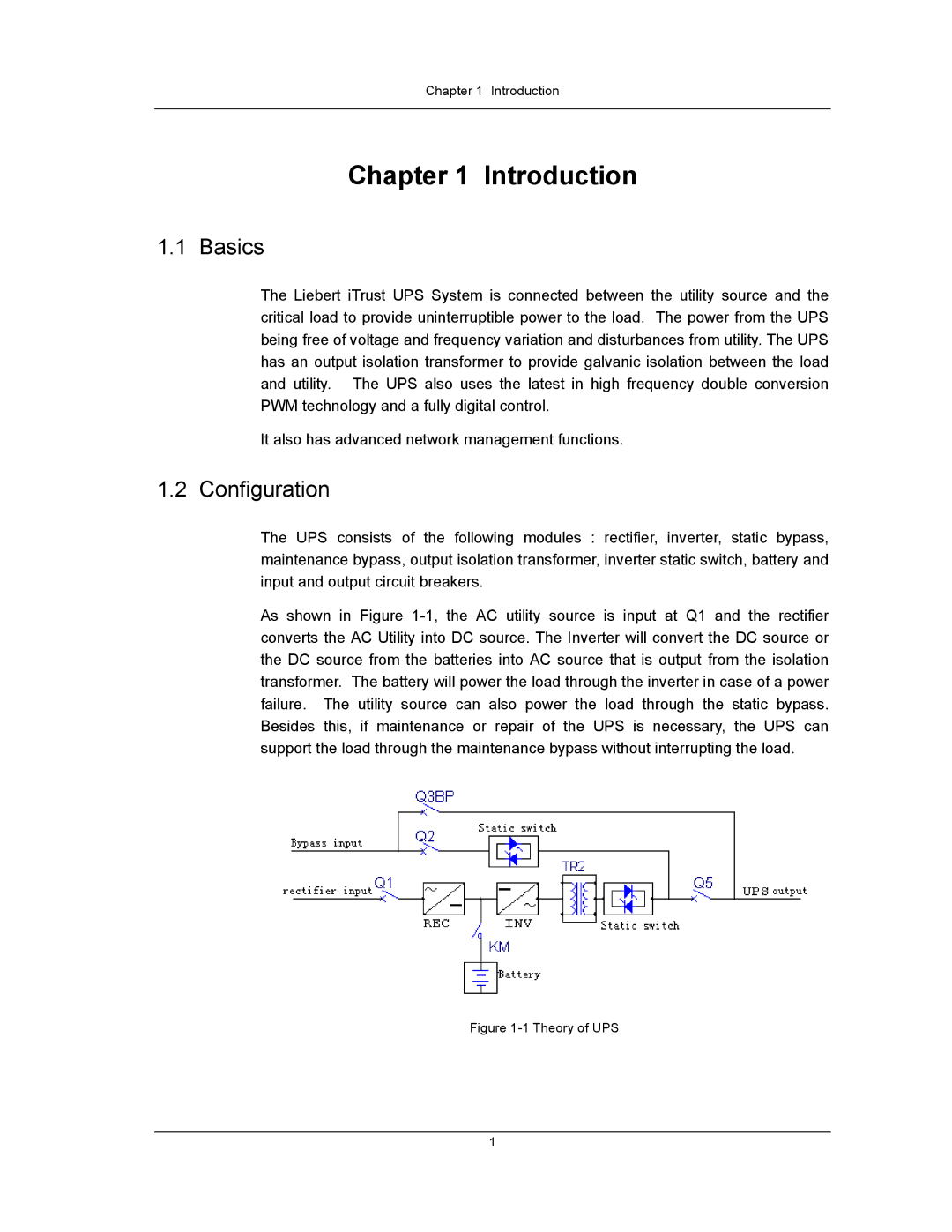
Chapter 1 Introduction
Chapter 1 Introduction
1.1 Basics
The Liebert iTrust UPS System is connected between the utility source and the critical load to provide uninterruptible power to the load. The power from the UPS being free of voltage and frequency variation and disturbances from utility. The UPS has an output isolation transformer to provide galvanic isolation between the load and utility. The UPS also uses the latest in high frequency double conversion PWM technology and a fully digital control.
It also has advanced network management functions.
1.2 Configuration
The UPS consists of the following modules : rectifier, inverter, static bypass, maintenance bypass, output isolation transformer, inverter static switch, battery and input and output circuit breakers.
As shown in Figure
Figure 1-1 Theory of UPS
1
